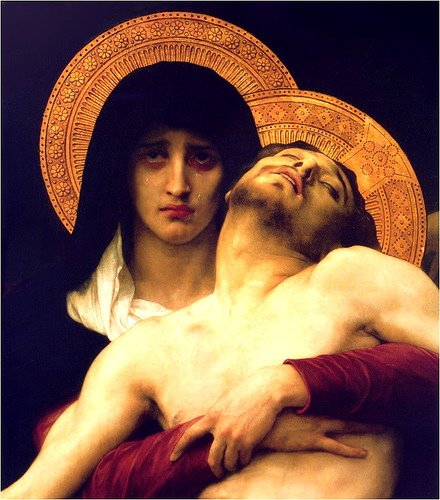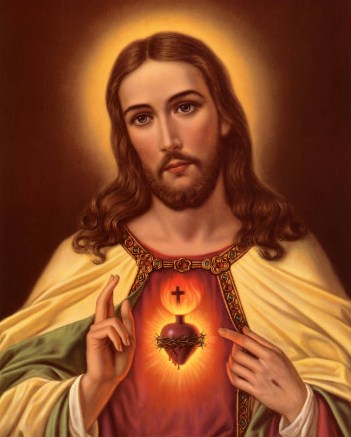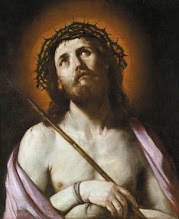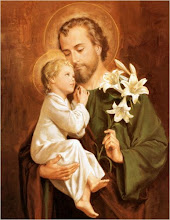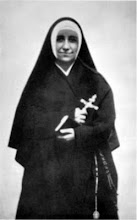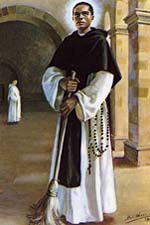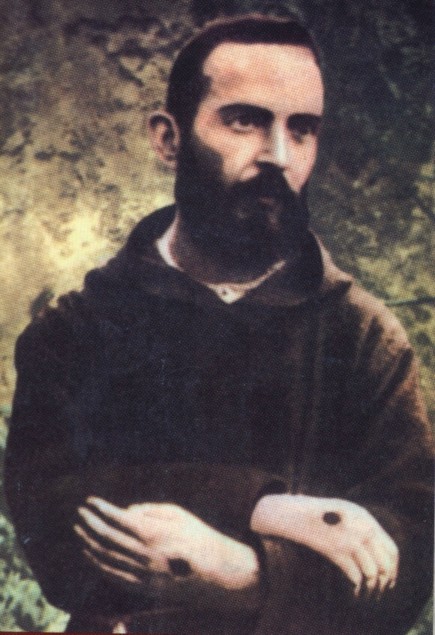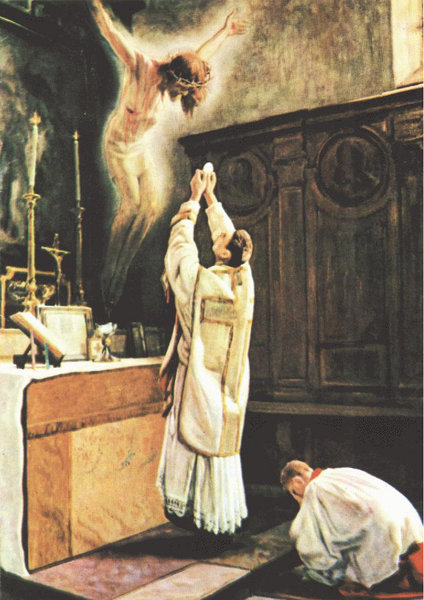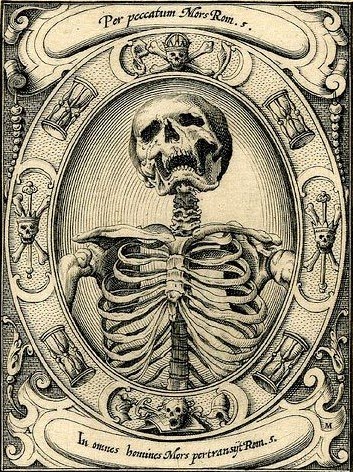Testimony of the Scriptures
By Bishop George Hay
IF EVER THERE WAS A TIME [the Eighteenth century] wherein the conduct of the Church was necessary, this present age seems in a particular manner to demand it. At present, the gates of hell seem to be quite set open, and infidelity of every kind stalks lawless on the earth; the sacred truths of religion are reviled and denied, the gospel adulterated by innumerable opposite and contradictory interpretations fixed upon it; its native simplicity disguised by loftiness of speech and the persuasive words of human wisdom, and a thousand condescensions and compliances are admitted and received, by which the inflexible purity of its maxims is enervated both in faith and practice, and the "narrow way that leads to life" converted, in the opinion of men, "to the broad road that leadeth to destruction." This observation is particularly true in regard to that latitudinarian principle so common nowadays, that man may be saved in any religion, provided he lives a good moral life, according to the light he has; for by this, the faith of Christ is evacuated, and the gospel rendered of no avail; a Jew, a Turk, a Heathen, a Deist, an Atheist, are all comprehended in this scheme, and if they live a good moral life, have as good a right to salvation as a [Catholic] Christian! To be a member of the Church of Christ is no longer necessary to salvation, whether we belong to it or not! What a wide field does this give to the passions of men! What liberty to all the whims of the human mind! It is, therefore, to the utmost consequence to examine upon what ground this principle stands; to see if it be sterling coin; to be satisfied whether we can trust our salvation to it or not. It is no doubt in the interests of Atheists and Deists to adopt this maxim, to extol it with the highest praises, to adorn it with the most specious veil of liberality of sentiment and charity; but a Christian who believes the gospel, will not so readily receive it; he knows the scripture contains the Truth of the Most High God, and that it is perfectly unsafe to trust our soul to any maxim, however specious it may appear, which is not grounded in their sacred oracles; and, therefore, before he adopt it, he will rigorously scrutinize it by what they teach.
It is the design of the following inquiry, or rather to show from the most precise declarations of the word of God, that the above freethinking maxim is diametrically opposite to all the lights of revelation. For there we learn, that the Son of God made man, and appeared among men on purpose to instruct them in the knowledge of those divine Truths, on which their salvation depends; and, therefore, that He absolutely requires true faith in Him, and in the sacred Truths which He revealed, as a necessary condition for salvation. There also he learns, that He instituted a holy Church upon earth, to be the depository of these truths, and that He absolutely requires of all to be united with that Church in order to be saved. The Church of Rome solemnly acknowledges and holds that without the true faith of Jesus Christ, and without being a member of His true Church, there is no salvation.
Direct Proofs from Scripture
(1) The prophet Isaiah, foretelling the glory of the Church of Christ, says, "No weapon that is formed against thee shall prosper, and every tongue that resisteth thee in judgment, thou shalt condemn," (Isaiah 3:17). "For the nation and the kingdom that will not serve thee, shall perish," (Isaiah 9:12). Here we see declared in express terms, that all those who oppose the Church of Christ, and refuse to submit to her authority, shall be condemned by her, and shall perish. Our Savior declares the same in still stronger terms, when He says to the pastors of His Church, in the persons of the Apostles, when He sent them to preach the gospel: "Whosoever shall not receive you, nor hear your words, going forth out of that house or city, shake off the dust from your feet. Amen, I say to you, it shall be more tolerable for Sodom and Gomorrah in the Day of Judgment, than for that city." (Matt. 10:14).
(2) Our Savior, after ordering us to admonish our offending brother in private, or before a few witnesses, concludes thus: "If he will not hear them, tell the Church. And if he will not hear the Church, let him be to the as a heathen or a publican." (Matt. 18:17). The heathens are those who know not the True God, and who worship sticks and stones, and the very devils themselves, instead of God; the publicans [tax collectors] were a set of people among the Jews, remarkable for their crimes [mainly, of extortion and irreligion], and looked upon by all as abandoned by God, and given up to a reprobate sense, with these, then, all those who obstinately resist the voice of the Church, are classed and condemned by the Mouth of Jesus Christ Himself.
(3) Our Savior speaking of His Church under the figure of a flock, of which He Himself is the Good Shepherd, says: "Other sheep I have, which are not of this fold; them also I must bring, that they shall hear My Voice, and there shall be one flock and One Shepherd." (John 10:16). He is here speaking of those who were not then joined in communion with His Apostles and other disciples, and he calls them, at that time, "His sheep;" but to show that there was no salvation for them in the state they were in, unless they were united to the fold, He says, "them also I must bring;" which shows, that according to the disposition of the Divine decrees, it was absolutely necessary, and that all who belong to Jesus Christ, all of whom He acknowledges for His sheep, should be brought to, and united in communion with, that one fold, which is His Church.
(4) In consequence of this, we are assured, that, when the Apostles began to publish the gospel, "the Lord daily added to the Church, such as should be saved." (Acts 2:47) which points out in the strongest manner, by what God actually did, that the being added to the Church is a condition absolutely required by Him, in order to be saved; and, if that were so then, it must be so now, and will be so to the end of the world; for the conditions of salvation, ordained at the beginning, and revealed by Jesus Christ, could never be altered by any other, and He never made any new revelation by which He altered them Himself.
(5) The Church is the Body of Christ, and all who belong to the Church are members of His Body, and as such are united with Jesus Christ, as the Head; but those who are out of the Church, are not members of His Body, and of course are not united with Jesus Christ, as the Head. Now, speaking of His Church and all her members, under the figure of a vine, with all its branches united to it, He says, "I am the Vine, ye the branches; he that abideth in Me, and I in him, the same beareth much fruit; for without Me ye can do nothing. If anyone abide not in Me, he shall be cast forth as a branch and shall wither, and they shall gather him up, and cast him into the fire, and he burneth." (John 15:5). What Christ here says, under the figure of a vine, is equally true as to the members of the Body; for no member who is separated from the body can do anything, it has neither life nor sense, nor motion, but corrupts and rots; which expressly shows, that if we be not united to the Church of Christ, whether we consider this Church as a Body consisting of Head and members, or as a vine with all its branches, we are not united with Church, and on that account are on the road to perdition.
Proofs from the Necessity of the True Faith
(1) Jesus Christ, addressing Himself to His Eternal Father, says: "This is eternal life, that they may know Thee the only True God, and Jesus Christ whom Thou hast sent," (John 17:3). Hence it necessarily follows, that all those who do not know Jesus Christ cannot have eternal life. Now, this knowledge of Jesus Christ, is not the bare knowledge that there was such a person, but believing Him to be what He is, the Eternal Son of God, made man for the salvation of mankind; and, therefore, He says again: "God so loved the world as to give his Only Begotten Son, that whosoever believeth in Him, may not perish, but may have life everlasting." (John 3:16). Hence the believing in Jesus Christ, is one condition positively required by God, in order to gain salvation; so that without this belief there can be no salvation; for, as He Himself again declares: "He that believeth not, is already condemned; because he believeth not in the Name of the Only Begotten Son of God." (John 3:18), and "He that believeth not the Son, shall not see light; but the wrath of God abideth on him," (John 3:36). And the beloved disciple adds, "Many seducers are gone out into the world, who confess not the Name of Christ in the Flesh; this is a seducer and an anti-Christ," (2 John 7). Where it is manifest, that those who do not know Jesus Christ, and consequently do not believe in Him; and also that those who do not know there was such a person, who heard of Him, but refuse to believe, and confess that He is the Son of God COME IN THE FLESH, cannot be saved; and therefore, that the knowing and believing in Jesus Christ, is appointed by Almighty God, as an absolute condition for salvation.
(2) But it is not enough to believe in the person of Jesus Christ; it is required to believe His doctrine, to believe His Words, to believe those divine Truths which He has revealed; and, indeed, how can we believe Him to be God, if we refuse to believe what He says? Hence, when He gave the pastors of His Church, in the person of His Apostles, their commission to preach the gospel He ordered them to teach the world "to observe," says He, "all those things whatsoever I have commanded you." (Mt. 28:20) And He immediately adds, "He that believeth not, shall be damned." (Mk 16:16) Where it is manifest that the belief of His doctrine, the observance, and consequently the belief of all those things which He commanded His Apostles to teach, is required as a necessary condition for salvation. Nay, He adds to another part, "Whosoever shall be ashamed of Me, and of My Words, in this sinful and adulterous generation, him also the Son of Man shall be ashamed of, when he shall come in the glory of His Father, with His holy angels." (Mk 8:38) Now, if the being ashamed of His Words shall bring on such a condemnation, what shall the denial of them do? It is evident, therefore, that the True Faith of Jesus Christ comprehends the belief of both His Person and of His Words, that is, of His doctrine, and that this True Faith is laid down by Almighty God as a necessary condition for salvation.
(3) As it is impossible that Jesus Christ should reveal contradictions, or say to one that a thing is true, and to another that it is false; hence it follows that the True Faith of Jesus Christ cannot contain contradictions; and, therefore, that it must be one and the same everywhere, and in no point contrary to itself; and this the scripture expressly affirms, saying, "One Lord, one Faith, one baptism," (Eph. 4:5). Now, St. Paul positively declares that "without Faith, it is impossible to please God." (Heb. 11:16) Consequently, this one True Faith of Jesus Christ is so absolutely required as a condition of salvation, that without it, let a man do what he wills, it is impossible to please God, or be saved.
(4) The Scripture declares that, when the Apostles published the Truths of the Gospel, "as many as were ordained to eternal life believed." (Acts 13:48); consequently, those who did not believe were not ordained to eternal life; whence it evidently follows, that Faith is a condition absolutely required by God or obtaining eternal life. For St. Paul affirms, "The sure foundation of God standeth firm, having this seal, the Lord knoweth who are His," (2 Tim. 2:19).; that is to say, God, from all eternity, most certainly knows who are His; who those are, who, by obeying His holy grace, will continue faithful till the end, and to be happy with Him Forever; and all such He ordains to eternal life. When, therefore, the scripture affirms, that as many as were ordained to eternal life believed, it evidently shows, that the belief of the Truth of the Gospel, or True Faith, is appointed by God as a necessary condition for salvation, as none are so ordained but those who believe.
(5) Our Blessed Savior, speaking of those who belong to Him says, "I know Mine, and Mine know Me ... My sheep hear My Voice, and I know them, and they follow Me, and I give them eternal life, and they shall not perish forever" (Jn. 10:14, 10:28). Can any words express more clearly, that to know Jesus Christ, and to hear His Voice, and to follow Him, that is to believe and obey Him, are the distinguishing characters of His sheep, to whom He gives eternal life? Consequently, those who do not believe Him are none of His, and therefore will not be saved; as he expressly says to the Jews, "but ye do not believe because ye are not of My sheep," (Jn. 10:26).; which shows to a demonstration, that Faith in Jesus Christ is expressly appointed by Almighty God, as a condition of salvation; "Neither is there salvation in any other; for there is no other name under heaven, given among men, whereby we must be saved." (Acts 4:12)
(6) St. Paul, expressing that of the Psalmist, "Today if ye shall hear his voice," etc., says, "And to whom did He swear that they should not enter into His rest, but to them that were incredulous; and we see that they could not enter in, because of unbelief." (Heb. 3:18) On this account he exhorts thus: "Take heed, brethren, lest there be in any of you an evil heart of unbelief to depart from the living God," (Heb. 3:12); and again, "There remaineth the day of rest for the people of God ... Let us hasten, therefore, to enter into that rest, lest any man fall into the same example of unbelief," (Heb. 4:9, 11). In all this passage, we see that the main scope of the Apostle is to show that unbelievers cannot go to heaven, and that this truth is confirmed by Almighty God, even with a solemn oath.
(7) The Holy Scripture declares that unbelievers, instead of going to heaven, shall be condemned to hell fire, and classes all such in company with the words of criminals. Thus, the Almighty Himself declares to St. John the Apostle, "But the fearful and unbelieving, and the abominable, and murderers, and whoremongers, and sorcerers, and idolaters, and all liars, they shall have their portion in the pool burning with fire and brimstone, which is the second death.," (Apoc. 21:8). If, therefore, Almighty God has sworn that unbelievers shall not enter into His rest, and if he declares that their portion shall be in hell, one must shut his eyes on purpose not to see that True belief, True Faith in Jesus Christ and His Words, namely, that Faith, WITHOUT WHICH IT IS IMPOSSIBLE TO PLEASE GOD, is absolutely required by Almighty God as a condition for salvation.
(8) The Word of God assures us, that, antecedently to Faith in Christ, all mankind are under sin, and that it is impossible to be justified from sin but by Faith in Jesus Christ, which is set forth by God as a means for obtaining justification. Thus, "we have charged both Jews and Greeks that they are all under sin, as it is written: There is not any man just (Rom. 3:9). But the justice of God is by Faith of Jesus Christ, unto all, and upon all them that belief in Him; for there is no distinction; for all have sinned, and do need the glory of God; being justified freely by His grace, through the redemption that is in Christ Jesus, whom God hath set forth to be a propitiation, through Faith in His Blood." (Rom. 3:22). Also, "The Scripture hath concluded all under sin, that the promise by Faith of Jesus Christ might be given to them that believe." (Gal. 3:22).
(9) The Athanasian Creed begins: "Whosoever will be saved, before all things, it is necessary that he hold the Catholic Faith, except every one do keep whole and undefiled, without doubt he shall perish everlastingly." Then after explaining the great mysteries of the Catholic Faith, concerning the Unity and Trinity of God, and the Incarnation and Death of Jesus Christ, it concludes with these words: "This is the Catholic Faith, which, except a man believe faithfully and firmly, he cannot be saved." This speaks plain indeed, and needs no application.
Now, seeing the True Faith, or the firm belief of those Truths which Jesus Christ revealed, is thus absolutely required as a condition for salvation, it follows as a necessary consequence, that, out of the True Church of Christ, there is no salvation, because this True Faith can only be found in the True Church of Christ; to her the sacred charge of the Truths of eternity was committed, the words of Jesus Christ were first put in her mouth, and an express covenant made by God, THAT THEY SHOULD NEVER DEPART FROM HER MOUTH. It is therefore from the pastors of the Church alone we can learn the True Faith, since they alone are authorized to preach it, and, hearing them, we hear Christ Himself. Hence, St. Paul says, "How shall they believe Him, of Whom they have not heard? And how shall they hear, without a preacher? And how shall they preach unless they be sent?" (Rom. 10:14). Now, the pastors of the Church were ordained and sent by Jesus Christ to "teach all nations, and to preach the gospel to every creature," consequently, it is only from them that the Truths of the Gospel can be learned.
Proofs Regarding Those Separated From the Church
In this section we are to consider what judgment the scriptures pronounce upon all those who are separated from the Church of Christ by teaching and believing doctrines contrary to hers; and, for the greater clearness, we shall first consider those who begin such separation, and teach false doctrine, and then those who follow such leaders. With regard to the former:
(1) Our Blessed Savior, foretelling the coming of false teachers, says, "Beware of false prophets, who come to you in sheep's clothing, but inwardly they are ravenous wolves; by their fruits ye shall know them;" and then He tells us, going on with the similitude of a tree, what shall be the portion of such false prophets. "Every tree," says He, "that bringeth not forth good fruit, shall be cut down and cast into the fire." (Mt. 7:15,19). Such is the fate of false teachers, according to Jesus Christ. St. Paul describes them in the same light, and exhorts the pastors of the Church to watch against them, that they may prevent the seduction of the flock. "I know," says he, "that, after my departure, ravening wolves shall enter in among you, not sparing the flock; and of your own selves shall arise men speaking perverse things, to draw away disciples after them. Therefore watch." (Acts 20:29). Such is the idea the Word of God gives of all those who depart from the doctrine of the Church of Christ, and teach falsehood, that they are RAVENOUS WOLVES, SEDUCERS OF THE PEOPLE, WHO SPEAK PERVERSE THINGS, and whose end is HELL FIRE.
(2) St. Paul concluding his epistle to the Romans, cautions them against all such teachers in these words: "Now, I beseech you, brethren, to mark them who cause dissentions and offenses contrary to the doctrine which ye have learned, and to avoid them: for they that are such serve not Christ our Lord, but their own belly, and by pleasing speeches, and good works, seduce the hearts of the innocent," (Rom. 16.17). Can such as these, who cause dissentions contrary to the old doctrine, and seduce the souls redeemed by the Blood of Jesus, who are not the servants of Christ, but His enemies, and are slaves to their own belly: can these, I say, be in the way of salvation? Alas! the same holy Apostle describes their fate in another text, saying, "That they are enemies of the cross of Christ, whose end is destruction, whose God is their belly, and whose glory is in their shame." (Phil. 3:18)
(3) In St. Paul's absence, some false teachers had come in among the Galatians, and persuaded them, that it was NECESSARY for salvation to join circumcision with the Gospel; on this account, the Apostle writes his epistle to them to correct them from this error; and though it was but an error in one point, and in appearance of no great importance, yet, because it was false doctrine, see how the holy Apostle condemns it: "I wonder how you are so soon removed from him that called you to the grace of Christ, unto another gospel; which is not another; only there are some that trouble you, and would pervert the Gospel of Christ. But though we, or an angel from heaven, preach a gospel to you, besides that which ye have received, let him be anathema." (Gal. 1:6). This shows with a witness, indeed, the great crime and dismal fate of false teachers, though but in only one point of false doctrine.
(4) St. Peter describes these unhappy men in the most dreadful colors. "There shall be among you," says he, "lying teachers, who shall bring sects of perdition, and denying the Lord who brought them, bringing on themselves swift destruction," (2 Pet. 2:1); And going on to describe them, he says, "Their judgment now of a long time lingereth not, and their destruction slumbereth not," (verse 3); "the Lord knoweth how ... to reserve the unjust unto the day of judgment to be tormented; and especially them who ... despise governments, audacious, pleasing themselves, they fear not to bring in sects, blaspheming," (verse 9); "leaving the right way, they have gone astray," (verse 15); "these are wells without water, and clouds tossed with whirlwinds, to whom the mist of darkness is reserved," (verse 17). Good God! what a dreadful state to be in.
(5) St. Paul, speaking of such as are led away by what St. Peter calls DAMNABLE HERESIES, says, "A man that is a heretic, after the first and second admonition, avoid; knowing that he is such a one, is subverteth and sinneth, being condemned by his own judgment," (Titus 3:10). Other offenders are judged, and cast out of the Church, by the sentence of the pastors of the same Church; but heretics more unhappy than they, run out of the Church of their own accord, and, by so doing, give judgment and sentence against their own souls.
(6) St. John brands all such false teachers who go out from the True Church of Christ with the horrid name of antichrists; "even so,' says he, "there are become many antichrists ... they went out from us, but they were not of us; remained with us; but that they may be manifest that they are not of us." (1 John 2:18); and to show that not only those ho deny the divinity of Jesus Christ, but also those who do not embrace His doctrine, fall under the same condemnation, he immediately adds, "Whosoever revolteth, and continueth not in the doctrine of Christ, hath not God. He that continueth in the doctrine, the same hath both the Father and the Son." (verse 9). What stronger terms could be used to show that all such as separate from the Church of Christ, and receive not His Sacred Doctrine, are out of the way of salvation?
Now, if all those who break off from the Church of Christ, and all those who teach false doctrine, contrary to the "faith once revealed to her, and which shall never depart out of her mouth," are condemned in such strong and severe terms by the Holy Ghost in His Holy Scriptures, what condition must those be in who follow such teachers, and hold such pernicious doctrine? Is there the smallest reason to suppose, that salvation can possibly be found among "ravenous wolves, seducers of the flock, speakers of perverse things?" Is it possible to be saved in "pernicious sects, damnable heresies, false doctrines, dissentions and offenses contrary to the doctrine received from the Apostles?" Can those be sure guides to heaven whom the word of God declares to be "enemies of the cross of Christ," and "antichrists, whose end is destruction," who fall under the anathema of the Apostle "to whom the mist of darkness is reserved?" But let us hear the scripture itself for the answer to these questions.
(1) St. Paul, in the black catalogue he gives of the works of the flesh reckons SECTS, or as the Protestant translation has it, HERESIES, and the rest of that hideous crew, he concludes in these words, "of which I foretell you, as I have foretold to you, that they who do such things shall not obtain the kingdom of God." (Gal. 5:20)
(2) Our Savior, foretelling the evils of the latter times, says, "and many false prophets shall arise, and shall seduce many ... but the that shall persevere to the end, he shall be saved." (Mt. 24:11,13). Is it not evident from this, that those who are seduced by these false prophets shall not be saved? And that salvation will be the happy lot only of those who persevere in the Faith and love of Christ to the end?
(3) St. Peter, foretelling that "there shall be lying teachers who shall bring damnable heresies, and bring upon themselves swift destruction, " immediately adds, "and many shall follow their riotousness, through whom the way of Truth shall be evil spoken of." (2 Pet. 2:2). Now, to whom are these ways pernicious, but to those who follow them?
(4) The whole epistle of St. Jude contains a description of all those who follow these pernicious ways, and of their miserable fate, and says, "that they are raging waves of the sea, foaming out their own confusion, wandering stars, to whom the storm of darkness is reserved forever." (verse 13)
(5) St. Paul, giving an ample description of heretics, says, among other things, that they have "an appearance of godliness, but deny the power thereof ... ever learning and never attaining the knowledge of Truth ... that they are men of corrupt minds, reprobate concerning the Faith ... and that being evil men and seducers, they grow worse, erring and driving into error," (2 Tim. 3). What grounds can such as these have to expect salvation?
(6) But our Blessed Savior, in one short sentence, clearly shows the miserable fate of all those who follow these blind teachers, when He says, "they are blind leaders of the blind, and if the blind lead the blind, both shall fall into the pit," (Mt. 15:14), which evidently shows that the lot of both shall be the same, and that all the above dreadful condemnations of false teachers equally belong to such as follow them.
(7) We shall add one proof more with regard to Jews, Turks, Heathens, and Idolaters, and all who know not the True God, nor Jesus Christ His Son, and who do not obey His Gospel; of these the scripture says, "The Gentiles have stuck fast in the destruction which they prepared ... the wicked be turned into hell, and the nations that forget God," (Ps. 9:16,18). "The Lord shall reign to eternity, yea, forever and ever. Ye Gentiles (THE HEATHENS) shall perish from his land," (Ps. 10:16) But particularly what follows: "Jesus Christ shall be revealed from Heaven with the angels of His Power, in a flame of fire, yielding vengeance to them who know not God and who obey not the Gospel of Our Lord Jesus Christ, who shall suffer eternal punishment in destruction from the face of Our Lord, and from the glory of His Power," (2 Thess. 1:7). This is no less clear and precise than it is dreadful and terrible, and cuts off all evasion, as it declares in the most express terms, that all those who know not God, and who obey not the Gospel of Christ, shall be lost forever; which evidently shows that the knowledge and belief of God, and of Jesus Christ and obedience to His Gospel, are absolutely required by Him, as essential conditions for salvation.
